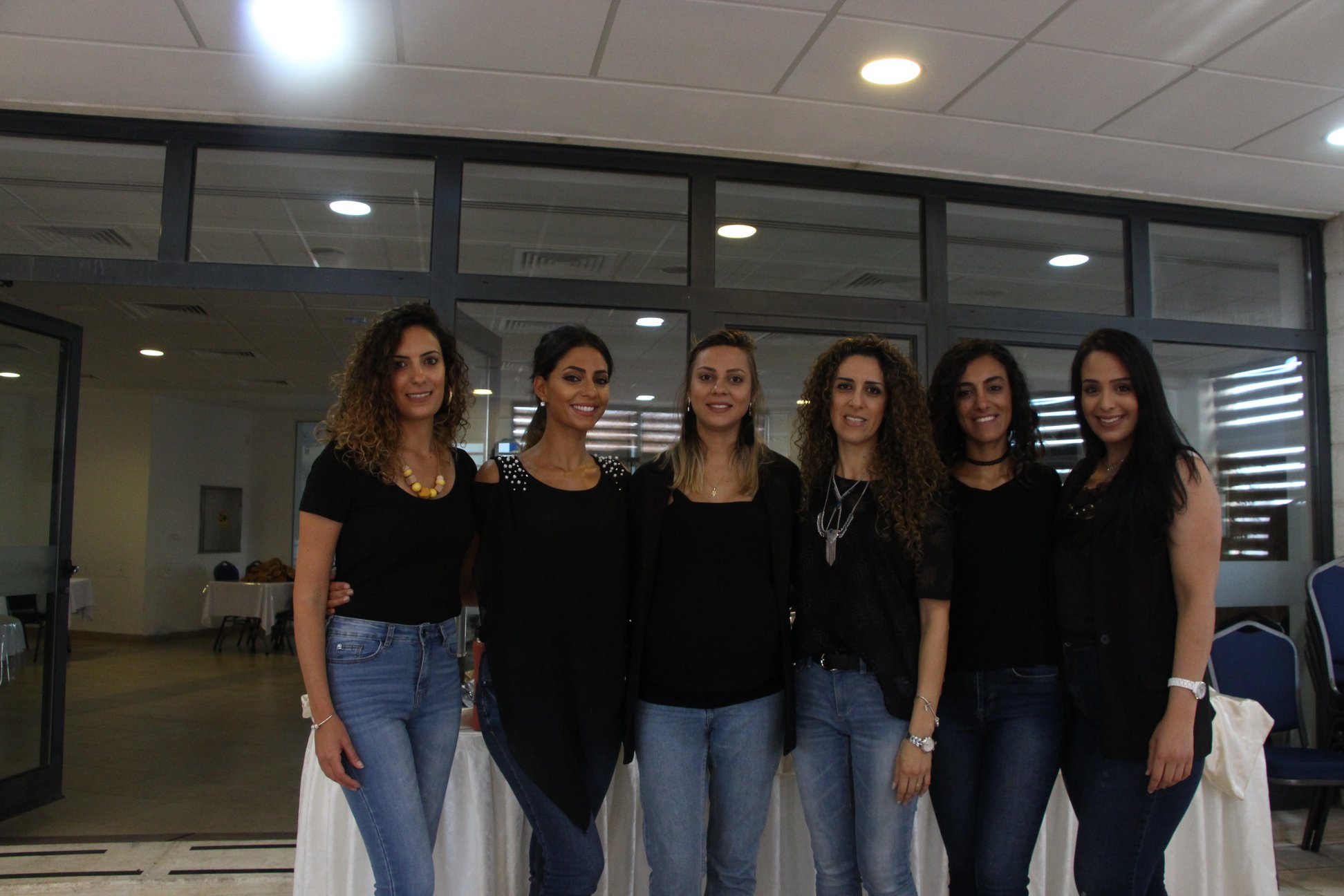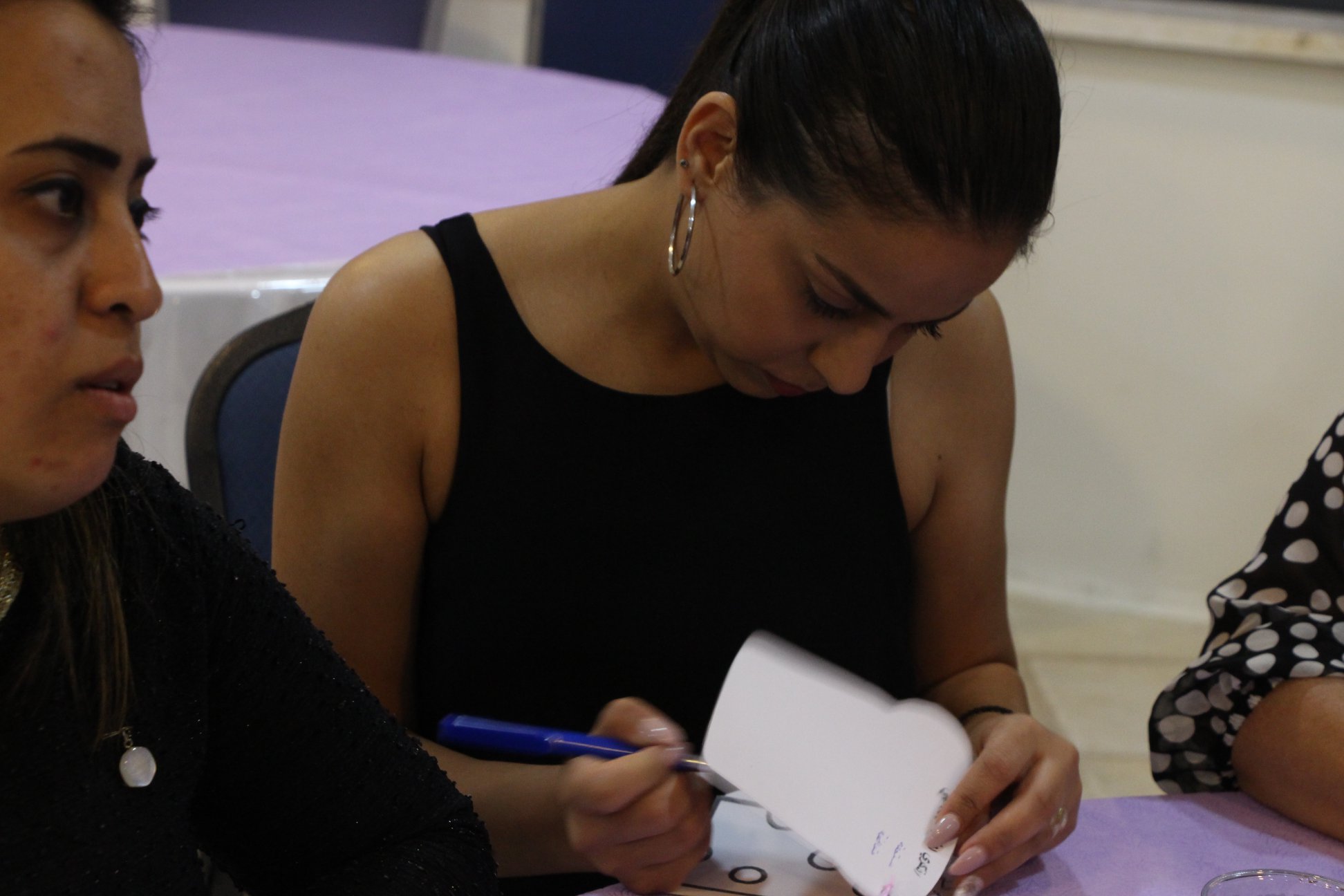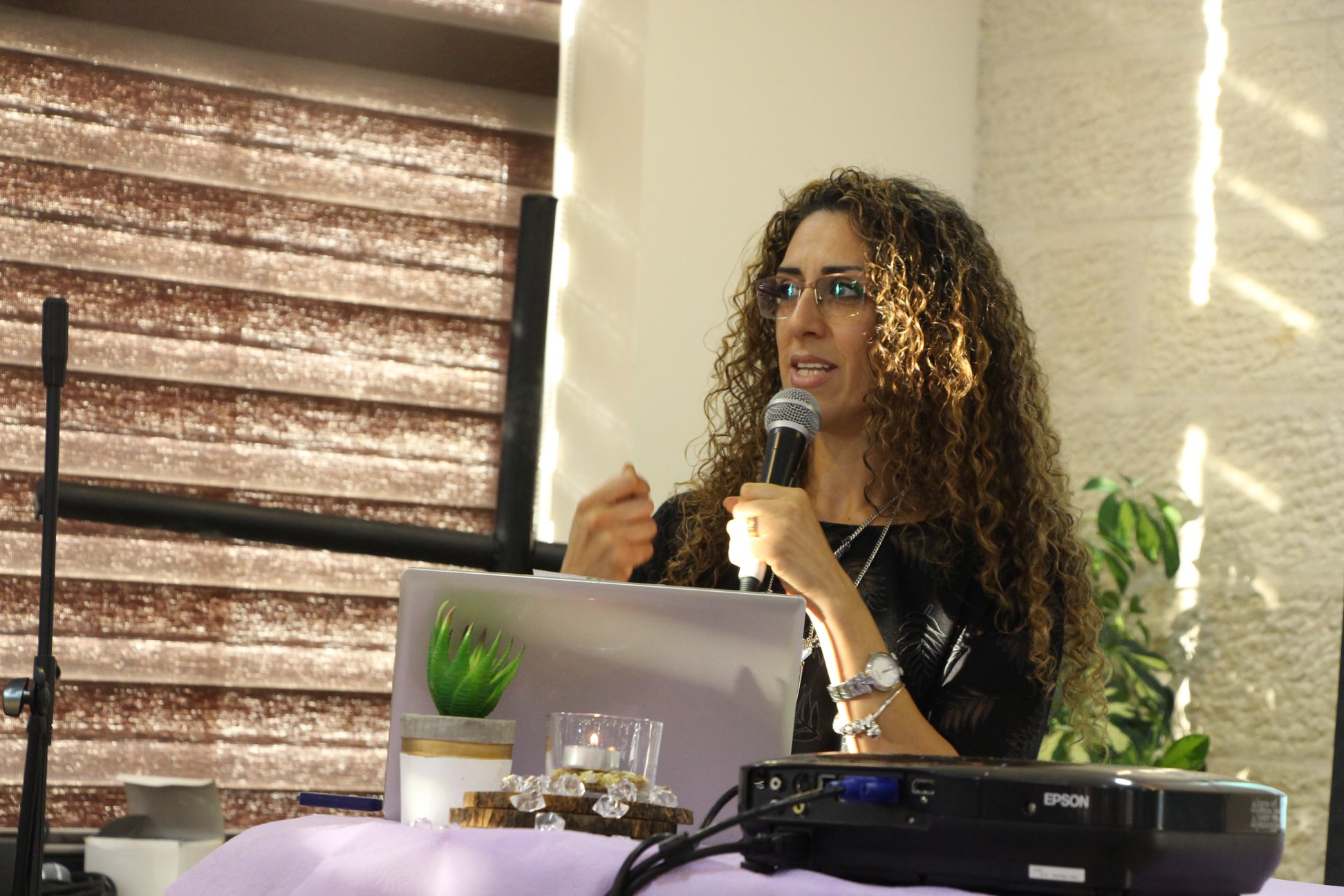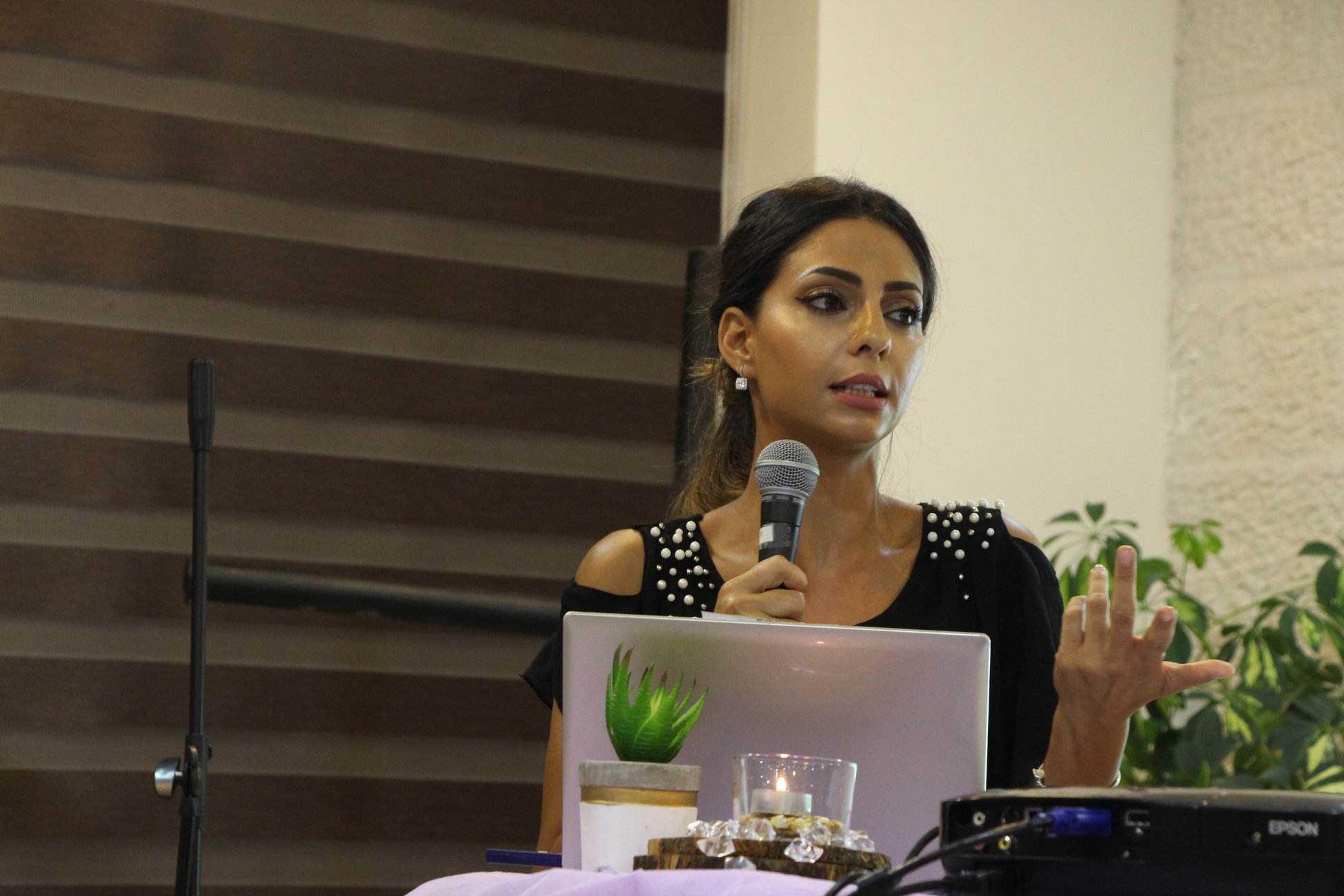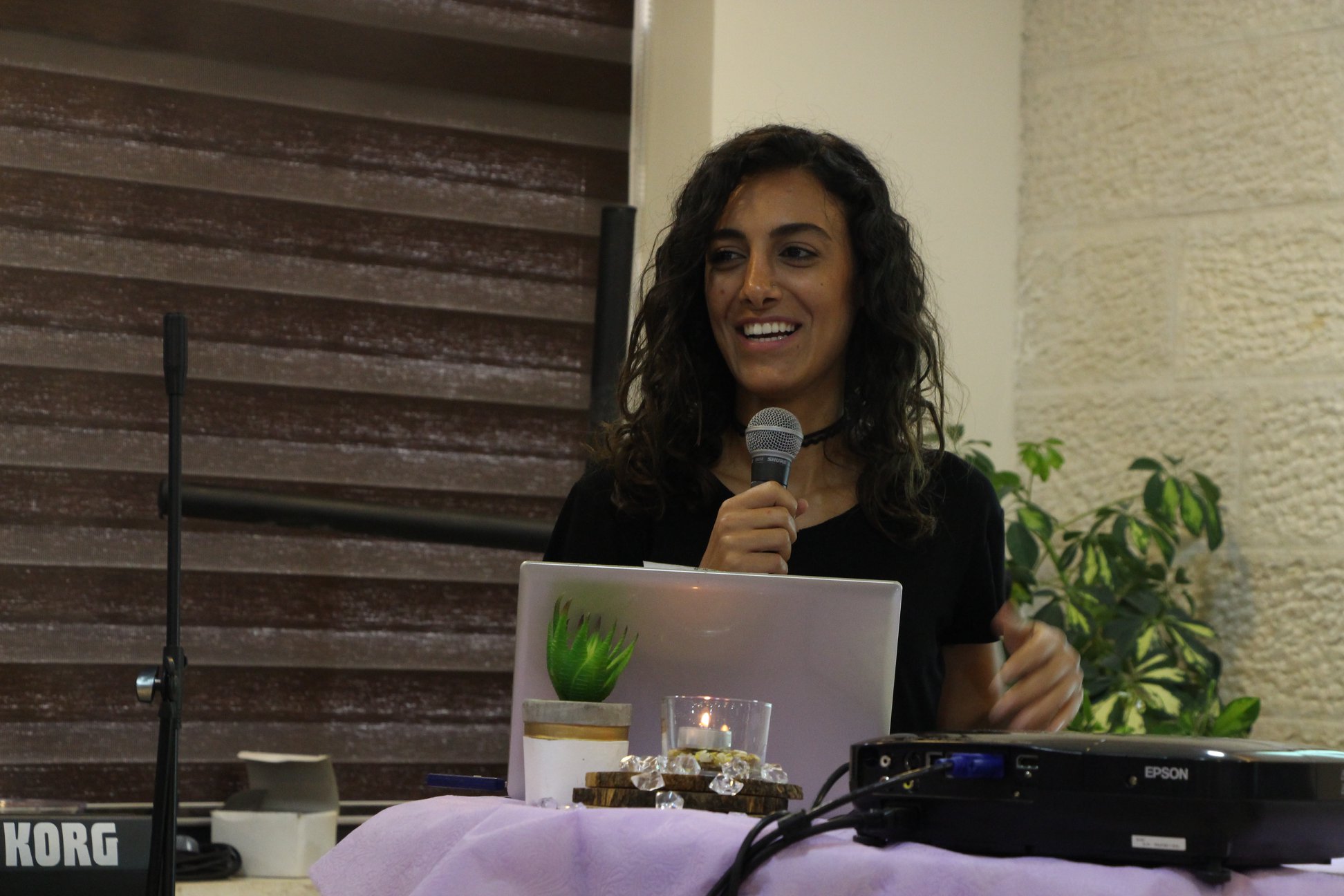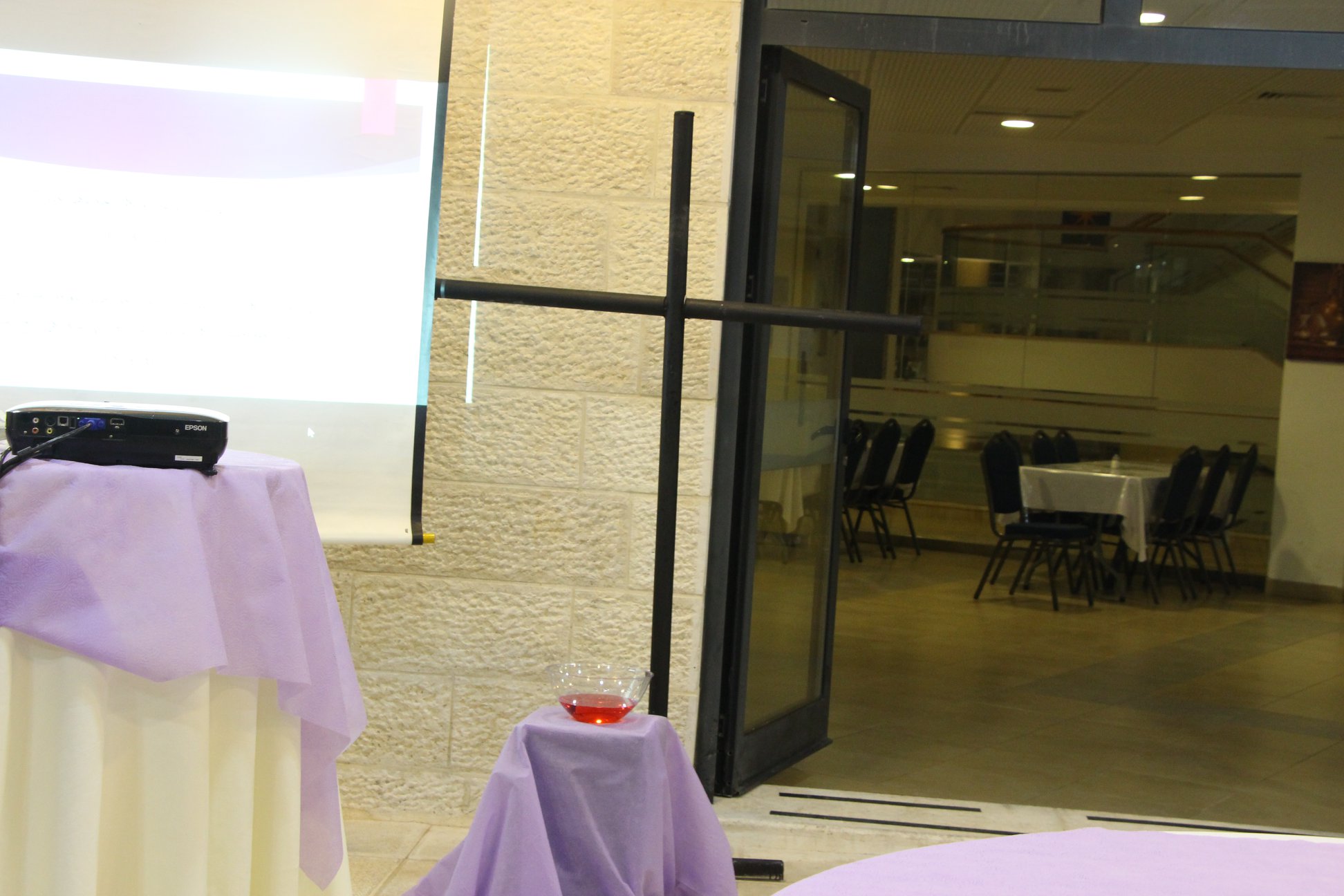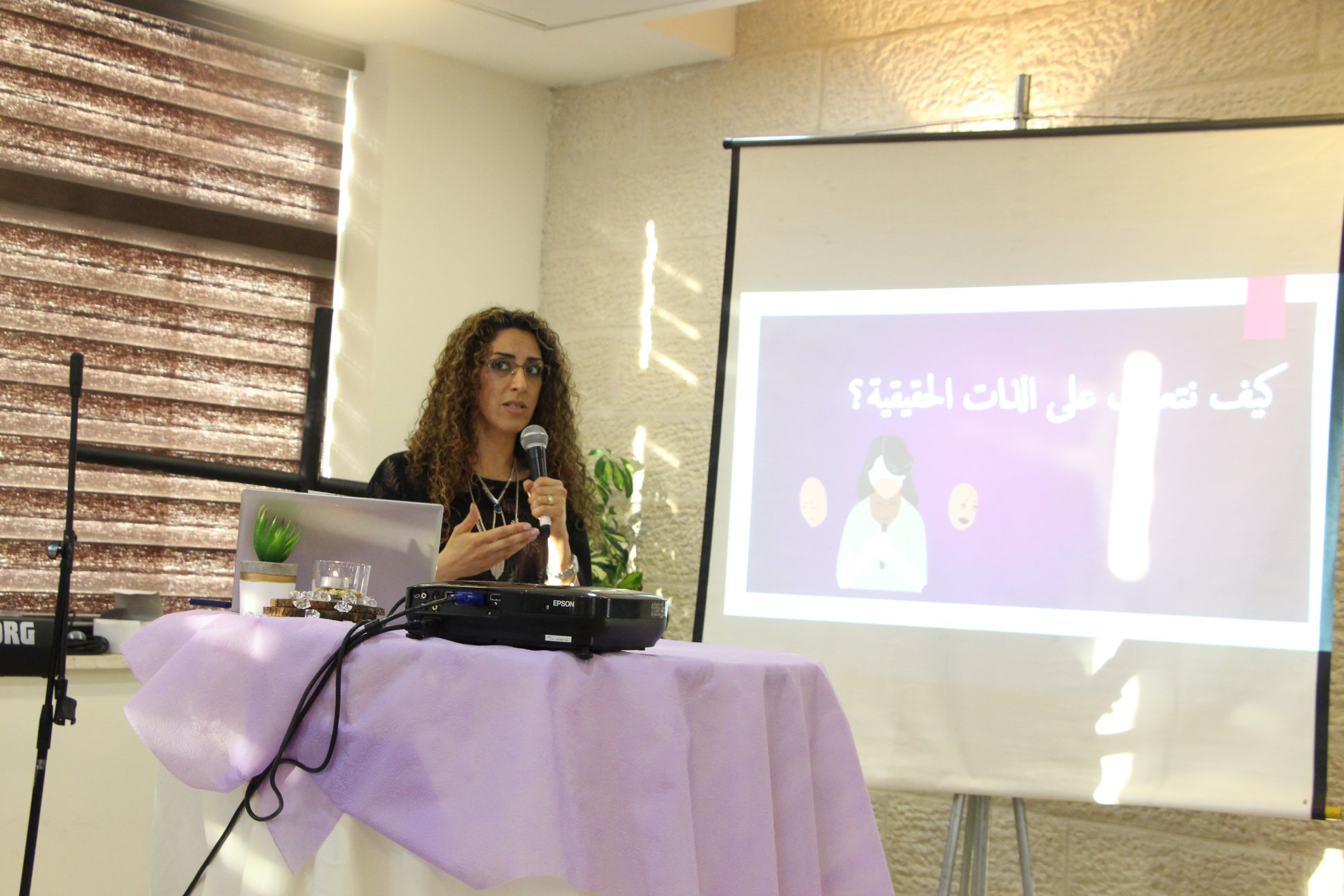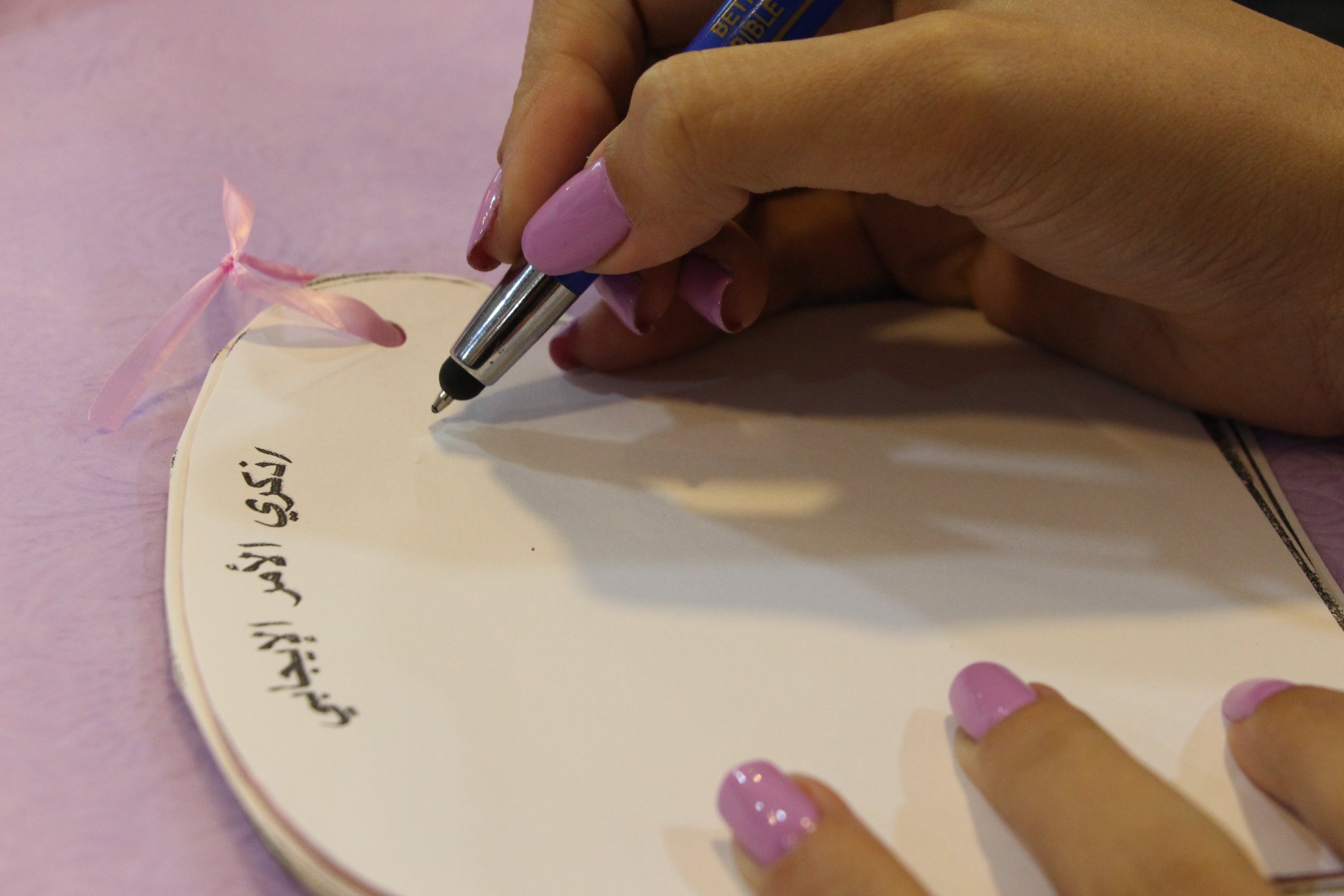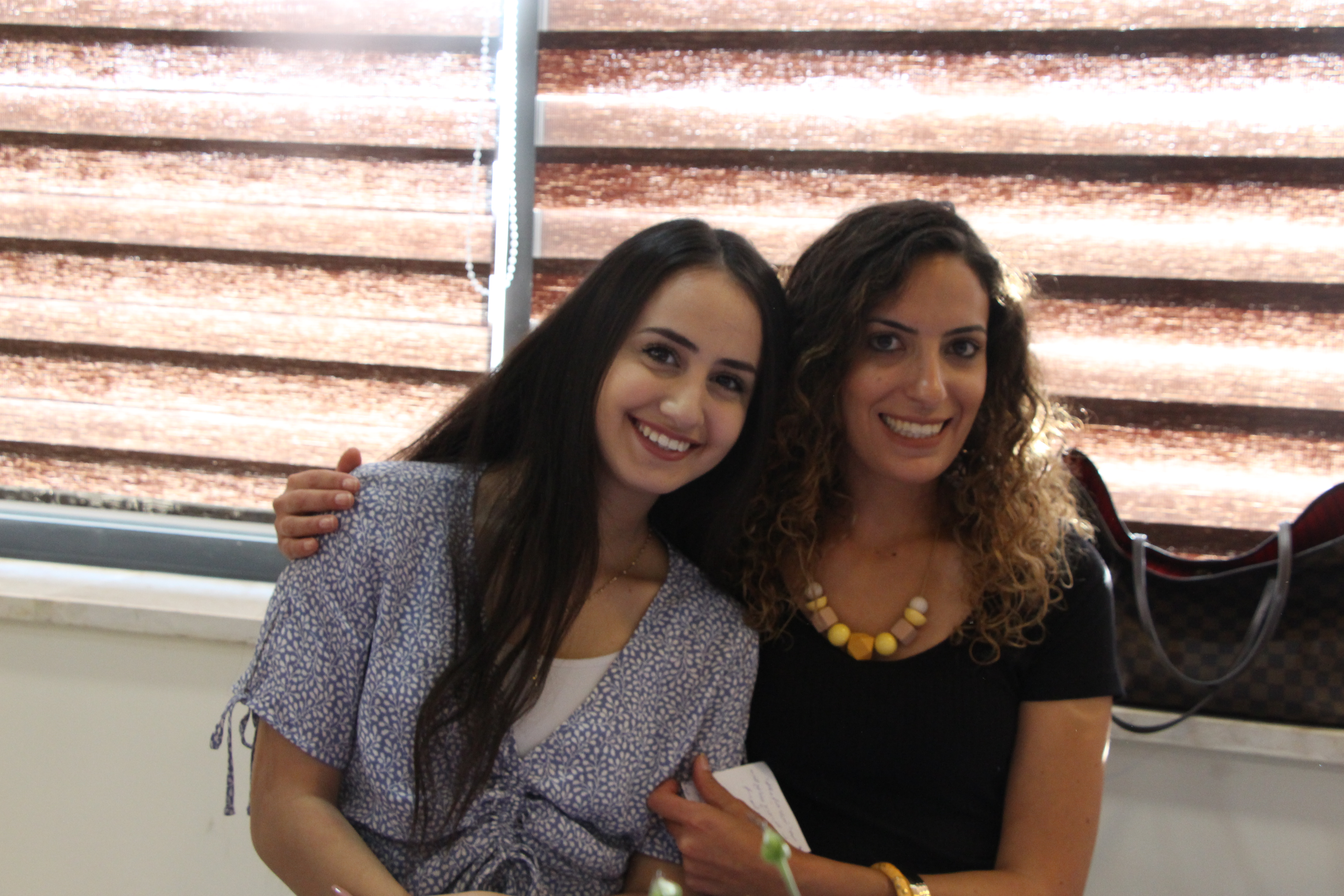
‘A Pot in His Hand:” Last Meeting of Series

‘A Pot in His Hand:” Last Meeting of Series
Many women have lost their true selves or haven’t even known about it. In order to protect themselves from the abusive environment in which they grew up, and in order to regain their true selves that will only return with the help of God and people, over the past few months, we have created a series titled, “Free Me so I Can Be Myself.”
This was the last meeting of the series, which was held by ‘A Pot in His Hand’ ministry under the title, “A Step Forward Towards Maturity and Dealing with Life.”
The meeting was opened by Suzanne Gabris with a simple meditation and a word of prayer, followed by worship led by Fatola Rafidi, accompanied with music by Sandy Sarras.
The meeting was characterized by the participation of the whole team in preaching, meditation and participation. Dr. Madeleine Sara, founder of the ministry, started by sharing about the subject of returning to the heart, where she stressed that in order to establish a true relationship with God, we must transcend our outer shell, which is a false self. This will only happen through contact with God and people. This friction exacerbates the veneer of our false perceptions of ourselves, God, and others, so that we can meet the true self, the true God and the true other.
This counterfeit self has three disadvantages that we must get rid of: pride, self-centeredness and control. Hadeel Dawood shared about pride in detail, and defined the aspects of pride that include our desire to change things around us, our lack of acceptance of people as they are, and our constant quest for perfection.
Dimares Nawwara shared about being self-centered which kills relationships. A person might think the world revolves around him/her, and that all people should notice them and give them status and importance. This kind of person kills relationships. Dimares provided practical steps on how to protect ourselves from self-centeredness.
Matilda Touma introduced the definition of control and its types, which include control over resources, including money, property, etc., and control through religiosity. She also provided practical steps to relinquish control in all its forms.
The evening also included other activities and games. At the end of the evening, each woman wrote an adjective or something that she wanted to get rid of, and give to God, in her personality or life, and placed it in a container containing a red liquid representing the blood of Christ and His cross, where they delivered these issues to the Lord.
At the end of the evening, there was time for some fellowship to exchange conversations and views on the evening.
One of the participants expressed her enjoyment of the meeting saying, “This month’s meeting was wonderful. I was very impressed by the ideas that were put forward. I never thought that a believer could have pride, domination and self-centeredness. We usually look at each other’s flaws and condemn others, especially believers, but we have to examine ourselves and be transparent with God’s work in our lives because He wants us to live without falsity.”
Another woman added, “I was very touched by the subject that was raised in this meeting, which focused on the love of domination. Personally, before faith, I had in me the love of control and ownership, and I thought that was normal and natural, that this was my nature, and that God created me like this. However, after coming to faith, I started to see this weakness, and I knew I had to change to the image of His son.”
On that same topic, another participant said, “I naturally like to be in control of every detail of my life, starting from my children, my house, to purchases and everything that belongs to the house! This evening I learned to rely on the Lord, for He is the only one who controls and dominates everything. I learned to pray, ‘Let your will be done, O Lord, not my will.’”
One woman said about the ministry in general, “’A Pot in His Hand’ ministry is the main reason for my closeness to God. In these encounters, I always have spiritual healing. After each meeting, I personally bring out new decisions and new beginnings; especially after I hear the confirmation of my value to the Father, and that I have a role to play in changing the world.”
Amira is the Communications Coordinator of Bethlehem Bible College. She is a committed Palestinian Christian who has a passion for writing about the intersection of faith and seeking justice for her fellow countrymen. To read more of her writings sign up for Bethlehem Bible College’s monthly newsletter.
